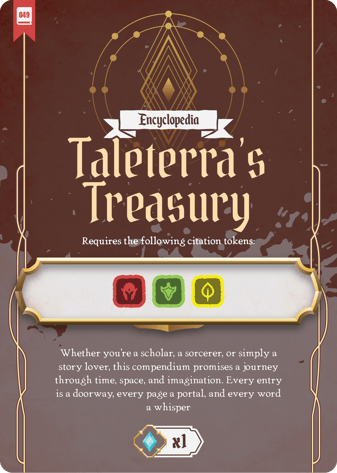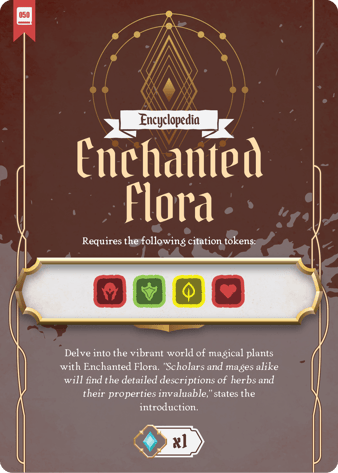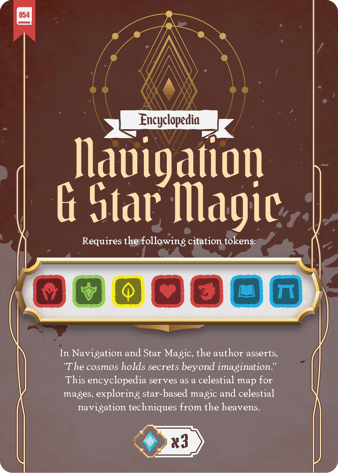
Encyclopedia
Within the hallowed halls of the Grand Archive, there exist vast tomes of collected wisdom, where knowledge is not confined to a single subject but sprawls across countless disciplines. Encyclopedias serve as repositories of summarized understanding, offering scholars a gateway to foundational concepts, historical overviews, and key figures across time and space. Whether penned by mortal historians, celestial scribes, or arcane scholars, these works ensure that no piece of knowledge is lost to obscurity.
Unlike books or journal articles, encyclopedias have unique citation elements, including:
An editor or compendium author, as encyclopedias are often collective works.
A specific entry or section title, since these works contain multiple topics under a single volume.
An edition number, as encyclopedias are frequently updated and expanded.
A digital or print version specification, ensuring clarity of access.
Below, you will find examples of encyclopedia citations, ensuring that comprehensive wisdom is properly preserved and credited.
General Encyclopedias & Knowledge Compendiums
These vast tomes of scholarship are designed to hold all known knowledge, though some scholars believe their pages shift, rewriting themselves as history unfolds.
Example (Harvard Style): Silverquill, T. (Ed.). (Year 1632). The Grand Archive Encyclopedia of Arcane and Mortal Realms (5th ed.). Eldertome Press.
Specific Entries & Scholarly Overviews
Encyclopedias often contain summaries of great events, figures, and discoveries, allowing scholars to quickly reference a subject without delving into entire treatises.
Example (APA 7th Edition): Brightwing, L. (Year 1499). Ley Lines and their Connection to the Celestial Weave. In Eldrin, V. (Ed.), The Encyclopedic Codex of Magical Phenomena (Vol. 2, pp. 312-326). Astral Quill Publications.
Digital Encyclopedias & Living Knowledge Archives
Some encyclopedias exist only in spectral form, housed within ethereal databases or shifting archives, where knowledge is constantly updated by unseen scribes.
Example (Chicago Style): Moonwhisper, C. 1725. “The Oracle Stones of Lunaria.” In The Infinite Archive of Mythic Relics [Online Encyclopedia]. Grand Ethereal Library. Available at: https://etherealarchive.lunaria.
Encyclopedias serve as guiding stars for scholars, illuminating the vast expanse of history, science, magic, and myth. By citing them, researchers ensure that foundational knowledge is preserved, referenced, and built upon for generations to come. To seek wisdom is to stand upon the shoulders of those who came before—but even the tallest towers of knowledge must have strong foundations.







